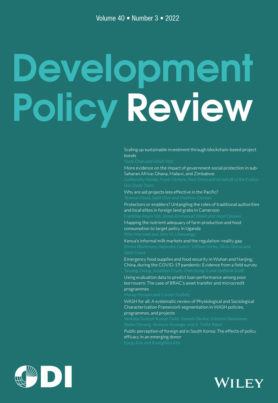Development Policy Review
Motivation
There are three puzzling features of sub-Saharan African tax systems: tax administrations maintain records on vast numbers of small enterprises that actually provide no revenue; they continually invest resources into registering even more of these “unproductive taxpayers”; and discussions about taxing small enterprises are framed by the ambiguous, misleading concept of the “informal sector”.
Purpose
To make sense of these separate, puzzling practices and narratives by exploring the synergies between them, and the broader organisational and political interests that they serve.
Methods and approach
There is little statistical or sociological information on the functioning of national tax administrations in sub-Saharan Africa. The analysis is based on the results of recent research; a thorough search for useful data; my own extensive interactions with African tax administrators and relevant international organizations; and a sensitivity to the political dimensions of taxation.
Findings
The three features of tax systems that are individually puzzling make sense when examined holistically. The continual drive to register more taxpayers provides an unduly favourable impression of the extent of policy and managerial efforts to collect more revenue. The informal sector narrative locates the apparent cause of revenue scarcity in the alleged under-taxation of small enterprises and poorer people, and thus helps divert attention from failures adequately to tax more privileged Africans and larger enterprises.
Policy implications
Be very wary of claims that it would be a good idea to invest resources in registering large numbers of new taxpayers in sub-Saharan Africa. Try to avoid using the term “informal sector” when discussing issues of tax policy and administration—it is confusing and diversionary.
